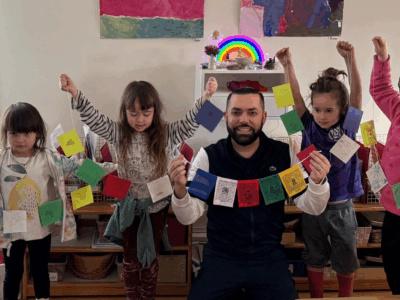Interview: “The Sacred Work of Sandra Cisneros”

About This Resource
Details
This interview is a rich resource on many levels. As a Mexican American author, Cisneros’ work has offered a way for countless students of color to glimpse their own experiences reflected back through her characters. As educators, it’s important to be aware of whose voices the stories we teach represent, and how we can balance those that are windows upon others’ worlds with those that are mirrors into students’ own experiences. If you’re not aware of the “windows and mirrors” metaphor, PBS offers this great overview and Learning for Justice provides this lesson you can use with your students. If you’re not familiar with Cisneros’ work, you might start by listening to her read this powerful short story, “Eleven” from her celebrated collection of short stories, “The House on Mango Street.” [Editor’s note: This is a story I have used in my own classroom to open discussions around equity and justice with kids who are around the age of eleven.]
In this article, Cisneros speaks about her own history, about her love for her own lineage of stories and her own rich heritage. She speaks about the power of writing as an act of offering, and the power her writing had to liberate her from shame and help guide her out of depression. The article itself is a rich exploration of heritage and the power of writing, and could be thoughtfully adapted into lessons for kids around 11 and up. If you do use it with kids, be aware that the article does mention suicidal thoughts, self-destruction and depression, so you may wish to have discussions to raise awareness around mental health with your students prior to reading.
Please consider reading this article on lineage to consider how this article aligns with Middle Way Education’s Thematic Units.
Read the article on Lion’s Roar here.
This article was originally published by Lion’s Roar. It has been reposted here with permission.

